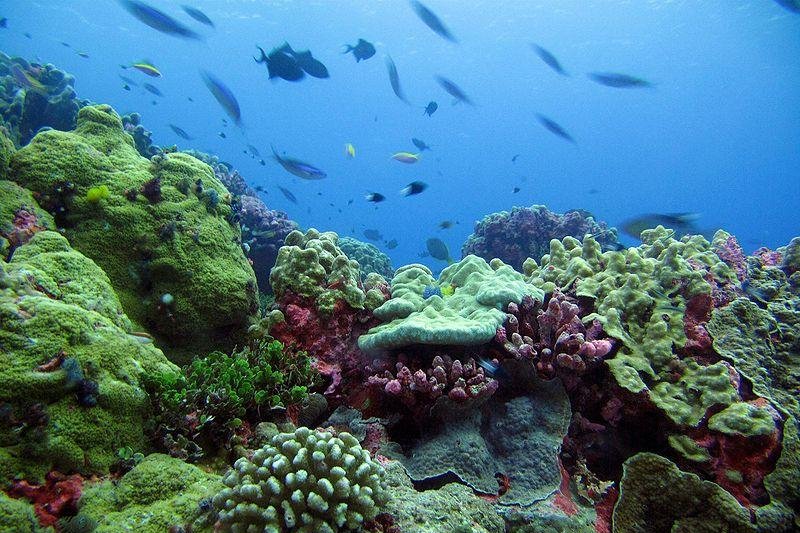Simply counting fish in healthy reefs makes for an ideal benchmark for ecological health. Photo by Dr. Randi Rotjan/New England Aquarium
BRISBANE, Australia, April 9 (UPI) -- Scientists say counting the number of fish living in healthy coral reef systems is the best way to set accurate benchmarks for coral reef recovery. It sounds simple, but the new research represents the first time the strategy has been distilled in great detail.
"By studying remote and marine protected areas, we were able to estimate how many fish would be on a coral reef without fishing, and how long it should take newly protected areas to recover," lead study author Aaron MacNeil, a researcher at the Australian Institute of Marine Science, explained in a press release. "This allows us to gauge the impact of reef fisheries, and make informed management decisions that include timeframes for recovery."
A team of international scientists, led by biologists and ecologists from the Australian Research Council, looked at biodiversity and fish capacity at a variety of coral reefs. They found that the healthiest, most well-protected reefs hosted 1,000 kilograms of fish per hectare -- that's roughly 900 pounds per acre.
Researchers set the total as a benchmark for a reef's ideal fish capacity. When they compared the benchmark to other, less healthy reefs, they found that 83 percent of reefs open to fishing pressure have lost at least half of their fish biomass.
Using their data, scientists showed that fished reefs take roughly 35 years to regain their full biological potential. Overfished or extremely depleted reefs take closer to 60 years to recover.
While the study confirmed that recovery is a lengthy process, it also showed that fisher management practices have discernible effects.
"Changes in fishing practices can result in a significant return of key fish species over time," said study co-author Nick Graham, a marine biologist at James Cook University.
"Restrictions on types of gears, species caught, or local customs, all ensured substantial recovery in fish feeding groups," Graham added. "However, only completely closed marine protected areas successfully returned large predatory fish to the ecosystem."
Researchers say the simple formula for measuring and projecting reef health should make decision-making for reef conservationists and fishing managers more straightforward.
"The methods used in this study are simple enough that fishers and managers can take the weight and pulse of their reef and keep it in a healthy range that had not previously been defined," explained Tim McClanahan, a fishing policy expert at the Wildlife Conservation Society in New York. "By choosing to conserve resources, fishers and managers have the ability to plan for recovery and help reefs remain productive in the face of increasing stress from climate disturbances."
The research was published this week in the journal Nature.















